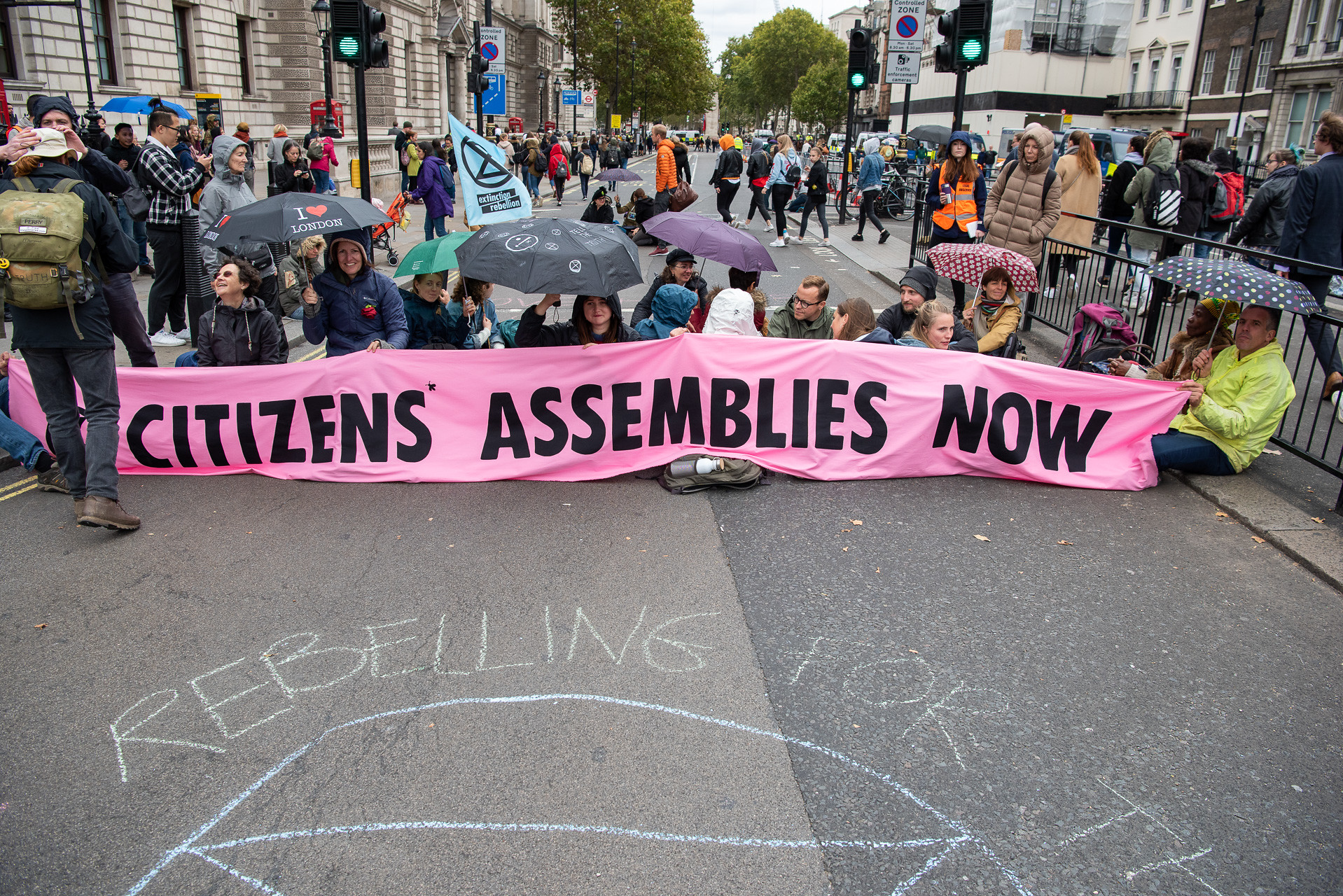 New research by Eric Neumayer investigates the impact of legalised prostitution on what is thought to be one of the fastest growing criminal industries in the world; human trafficking. Countries where prostitution is legal experience larger reported inflows of human trafficking.
New research by Eric Neumayer investigates the impact of legalised prostitution on what is thought to be one of the fastest growing criminal industries in the world; human trafficking. Countries where prostitution is legal experience larger reported inflows of human trafficking.
Every year, thousands of men, women and children are trafficked across international borders. The vast majority of countries in the world are affected by trafficking, whether as a country of origin, transit or destination for victims. The United Nations estimated in 2008 that nearly 2.5 million people from 127 different countries had been being trafficked into 137 countries around the world.
Research on human trafficking is still in its early stages, but is growing as the seriousness of the problem becomes more apparent. It is thought to be second only to drug trafficking globally as the most profitable illegal industry. International human trafficking is one of the dark sides of globalisation. Most victims of international human trafficking are women and girls, the vast majority of whom end up being sexually exploited through prostitution. Domestic policy on prostitution in countries of destination, our research suggests, has a marked effect.
We wanted to find out if legalised prostitution increases or reduces demand for trafficked women. One effect suggested by theory is that legalised prostitution reduces demand because legally residing prostitutes are favoured over trafficked ones after legalisation. Another effect is that legalised prostitution will increase market size and thus, all other things equal, increase demand. The net effect is thus theoretically ambiguous and it is an empirical matter whether demand for trafficking decreases or increases.
Our empirical research used a global sample of 116 countries. We found that countries where prostitution is legal tend to experience a higher reported inflow of human trafficking than countries in which prostitution is prohibited. Our research thus suggests that in countries where prostitution is legal, there is such a significant expansion of the prostitution market that the end result is larger reported inflows of human trafficking. Legalising prostitution appears to boost the market for this fast-growing global criminal industry.
We also looked in more detail at Sweden, Germany and Denmark, which changed their prostitution laws during the past 13 years. Sweden prohibited it in 1999, while Germany further legalised it by allowing third-party involvement in 2002. Denmark decriminalised it in 1999 so that self-employed prostitution is legal, but brothel operation is still forbidden. Germany showed a sharp increase in reports of human trafficking upon fully legalising prostitution in 2002. The number of human trafficking victims in 2004 in Denmark, where it is decriminalised, was more than four times that of Sweden, where it is illegal, although the population size of Sweden is about 40 per cent larger.
Due to the clandestine nature of both trafficking and prostitution markets, our analysis had to rely on the best available existing data on reported human trafficking inflows. That legalised prostitution increases human trafficking inflows is likely, but cannot be proven with available evidence. The likely negative consequences of legalised prostitution on a country’s inflows of human trafficking might be seen to support those who argue in favour of banning prostitution, thereby reducing the flows of trafficking. Other reasons might speak against prohibiting prostitution despite its impact on human trafficking, however. Working conditions could be substantially improved for prostitutes—at least those legally employed—if prostitution is legalised. Prohibiting prostitution also raises tricky “freedom of choice” issues concerning both the potential suppliers and clients of prostitution services.
Our article, Does Legalized Prostitution Increase Human Trafficking?, co-authored with Dr Seo-Young Cho of the German Institute for Economic Research and Professor Axel Dreher of Heidelberg University, is published in the January 2013 edition of the journal World Development. A freely accessible version can be found here.
Note: This article gives the views of the author, and not the position of the British Politics and Policy blog, nor of the London School of Economics. Please read our comments policy before posting.
Eric Neumayer is Professor of Environment and Development in the Department of Geography and Environment at LSE. He joined the department in 1998, having been an academic assistant at the Centre for Law and Economics at the University of Saarbrücken, Germany.








“We also looked in more detail at Sweden, Germany and Denmark, which changed their prostitution laws during the past 13 years. Sweden prohibited it in 1999, while Germany further legalised it by allowing third-party involvement in 2002. Denmark decriminalised it in 1999 so that self-employed prostitution is legal, but brothel operation is still forbidden. Germany showed a sharp increase in reports of human trafficking upon fully legalising prostitution in 2002. The number of human trafficking victims in 2004 in Denmark, where it is decriminalised, was more than four times that of Sweden, where it is illegal, although the population size of Sweden is about 40 per cent larger.”
I wonder where you get your figures from. Eurostat published their 2013 report into trafficking of persons recently. Sweden, with 0.8 cases per 100,000 habitants, is on par with Germany. Not just that, the rate in Sweden has actually quadrupled between 2008 and 2010. Denmark has a lower rate, with 0.5 cases per 100,000 habitants. Romania, where prostitution is illegal, reports more human trafficking than the Netherlands. Therefore the whole premise of your article is flawed.
I can understand when lobbyists preaching for Swedish laws manipulate evidence to fit their arguments. But for an academic to be so intellectually dishonest, I find that sad. Interestingly, sex workers across Europe have repeatedly said that they do not want laws like those of Sweden to be applied in their country. But apparently, their opinion doesn’t matter, and the lobbyists know better than the people they pretend to protect.
Dear Dr. Neumayer,
I’m surprised by the amplitude of the conclusions you draw from your research into the possible connections between trafficking and the (de)criminalization of prostitution. I am a social scientist who’s made some moderate contributions to trafficking research myself over the past few years. I do not work for the illustrious LSE, but I do indeed have enough of a professional background in the study of trafficking that I can see a few gaping holes in your methodology and conclusions – at least as they are presented here – which seem to invalidate your hypothesis.
I’m wondering if you would be so kind as to address these questions?
1) First of all, what is the definition of “trafficking” which you use to count “reported trafficking inflow”? Is it the same from country to country, group to group?
I ask because it has been my experience that pretty much every anti-trafficking group, while using the Palermo Protocol as a toushstone, has a different practical definition of the crime. The differences in reported inflows may thus very well come from reporters’ biases and may thus very likely NOT represent a trustworthy metric for trafficking incidents in the countries under question. You seem to acknowledge that these reports are a weak straw upon which to base your arguments, then you go ahead and use them anyhow, handwaving objections aside.
Need I remind you that highly politicized data reported by the mass media is not necessarily “the best available”, simply because it is easily available? When data is entirely or almost entirely based upon what American moral philosopher H. Frankfurt calls “bullshit” (i.e. enunciations that are neither false nor true but entirely designed to create a political impact), then it’s a case of “garbage in, garbage out”. Referring to this data as “the best available” doesn’t suddenly transform its essential quality, making it “qualified truth” rather than “bullshit”.
2) Furthermore, trafficking influx reports are NOTORIOUSLY exagerated for political reasons, most precisely in the context of prostitution (de)criminalization debates. Decriminalized prostitution is a minority position among the world’s nations today and it is under attack, everywhere, by well-funded and politically astute abolitionist groups. Most of these groups have made anti-trafficking the cornerstone of their arguments and almost all of these groups have notoriously and repeatedly overestimated the number of trafficking victims in the worlkd today.
Have you thus accounted for the political bias of the groups reporting “trafficking” in the context of the national debates now raging in each of these countries? Have you made any attempt to adjust for the probable overwhelming abolitionist bias of the 116 reports in your sample by including a like number of reports from non-abolitionist groups?
A very plausible hypothesis which must be proven false, were yours to be true, is that the countries which have decriminalized prostitution attract “trafficking reporting groups” that are abolitionist and which exagerate and falsify trafficking counts.
3) Finally, have you taken into consideration the actual legal mechanics of what constitutes “trafficking” in the countries under consideration – as opposed to those behind other sex-related crimes?
This is particularly important because in a country where prostitution AND trafficking are illegal (such as Sweden), police have an option when it comes to applying laws regarding prostitution. Cases of trafficking might thus be swept under the legal classification “prostitution”. This would be particularly likely if (as is the case in most of Europe) much of the recent anti-sex law enforcement is pragmatically directed towards the repression of illegal and irregular immigration.
Immigrant women involved in prostitution who in countries such as Denmark, which have decriminalized prostitution, would thus be much more likely classified as “trafficked” (independent of whether or not they’ve suffered any human rights violations) simply for being foreign, irregular and a prostitute. Meanwhile, Sweden can arrest these women in “prostitution investigations” and deport them as ilegal or irregular immigrants without incurring the cost of an anti-trafficking investigation.
Putting this hypothesis into laymen’s terms, cops in Europe tend to overwhelmingly look for foreign prostitutes when they do anti-prostitution/anti-trafficking busts. Each deported foreign prostitute is registered as a legal victory by most European police forces.
If cops can arrest foreign women on prostitution-related charges and deport them as irregular or illegal immigrants, this is probably what they are going to do in the majority of cases as this sort of legal action only requires administrative activity and reqires little investigation and even less court time. Your recent Operation Pentameter in England did precisely this: most of the women “rescued” were deported and never were entered into the system as “trafficking cases”.
Trafficking investigations, on the other hand, are long, drawn out affairs that are CRIMINAL in nature. In those countries where sex-working foreign women cannot be harassed through the use of anti-prostitution laws, however, anti-trafficking laws are the only card the police have. In Denmark, this has particularly been the case and there anti-trafficking law has been widely mobilized to arrest and deport foreign sex-working women.
You thus seem to make the rather innocent assumption that police forces are primarily looking for “trafficking victims” when they go into brothels, rather than looking for irregular and illegal immigrant women to who the law might be applied. In countries where prostitution is decriminalized, trafficking law is used to this end. In countries where it’s not decriminalized, prostitution and immigration law will be used.
The numbers of anti-trafficking cases may very well thus reflect the political and practical dynamics of law enforcement itself instead of being a reasonable measure of what the Palermo Protocol calls “trafficking” (which is not, I remind you, simple prostitution).
This third hypothises, by the way, is sustained by my ethnographic research among Brazilian prostitutes who have recently returend from Europe. My information regarding how European police see this issue comes from several sources but most directly from the ex-Chief of Police of Gothenburg, Sweden, who admitted to us here in Brazil that his officers use ethnic profiling in suspected prostitution cases and sees their goal to be the “repatriation” of these women, using any means necessary.
The London School of Economics is a highly respected institution of higher learning and the debate surrounding prostitution and trafficking is an extremely polemical and highly political issue. It thus surprises me to find such broad conclusions being drawn from the sort of preliminary and unnuanced research that you’ve presented here.
When I was working towards my PhD in social anthropology, we were told to consider the probable ethical and political fall out of our research before making any public claims regarding it. Here, you seem to have produced quantitatively broad but qualitatively very shallow data and you use this to draw extremely deep qualitative conclusions. You do this in the context of a highly politicized debate regarding your research object and you seem to not be in the least concerned about what the ethical and political fallout from your very shaky hypothesis might be.
Why have you chosen to draw these unsustainable conclusions in such a public manner, Dr. Neumayer?
Best,
Thaddeus Gregory Blanchette